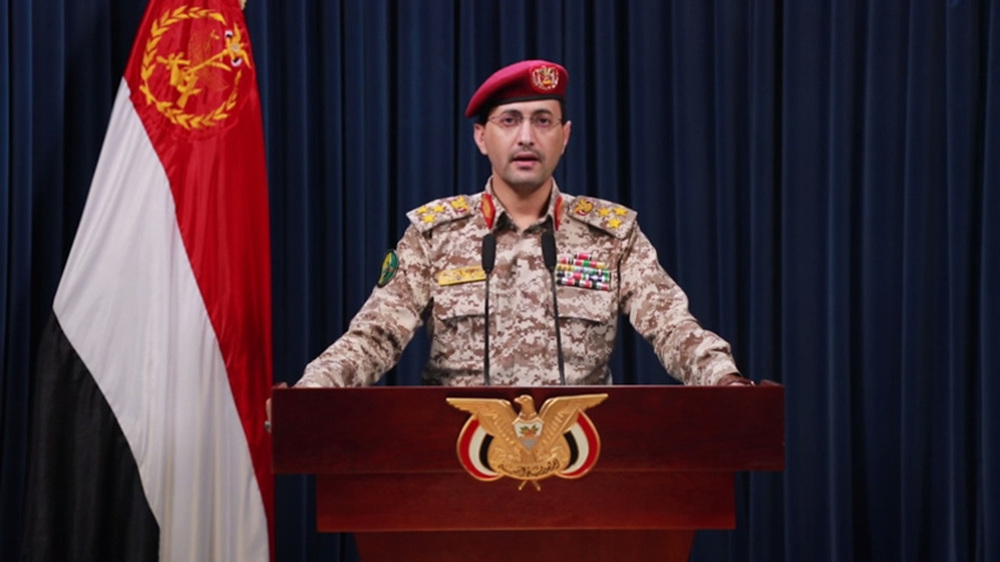Aid agencies blame Saudi war, blockade for cholera outbreak in Yemen
International organizations, including the United Nations (UN) and the Red Cross, say the Saudi-led war on and embargo against Yemen are behind a cholera epidemic that has claimed the lives of more than 180 people in the impoverished country so far.
The International Committee of the Red Cross (ICRC) said 11,000 confirmed cases of cholera had been reported in the country, describing the situation as “catastrophic.”
Dominik Stillhart, the ICRC’s director of operations, said the hospitals he had personally visited in the Yemeni capital, Sana’a, were “really struggling to cope” with the increasing numbers of patients.
Stillhart said 160 hospitals and other medical facilities had been demolished, mostly in Saudi military attacks, “seriously weakening the health system.”
He also said the Saudi aerial and naval blockade on Yemen was one of the main causes of the famine and poverty, which in turn provided a breeding ground for the cholera epidemic as it hindered the transport of goods and medicine into the country.
Stillhart also said the Saudi war had led to the collapse of the economy in Yemen and had made it very costly to move merchandise across the country through different front-lines.
The ICRC’s second-in-command stressed that the Red Cross had “repeatedly called on the conflict participants” to allow full access to all areas for humanitarian aid.
He also estimated that more than 17 million Yemenis, two-thirds of the population, required humanitarian aid, and 10 million were in “acute need” of food supplies.

Meanwhile, Sara Tesorieri, with the Norwegian Refugee Council, said the collapse of the economy in Yemen had led to civil servants not being paid for eight months, which subsequently affected basic services such as sanitation.
She said that “garbage-laden water has been running through the streets of Sana’a when it rains,” providing the perfect conditions for the spread of cholera.
“Cholera is preventable. If you have the health systems and the response in place, you can control its spread, but the systems here have just been decimated. And the authorities don’t have the capacity that they had even four months ago to deal with this,” Tesorieri said from Sana’a, where a state of emergency has been declared.
“People are not able to buy water that’s pure,” Jamie McGoldrick, the UN humanitarian coordinator in Yemen, said, adding “We are just not able to see how we can turn this around quickly. And time is of the essence, because cholera does not wait for anybody.”
The three experts criticized the leading international powers for failing to broker a political settlement of the conflict in Yemen and to dedicate enough financial resources for the impoverished country.
“We have less than 20 percent of our appeal funded, despite a pledging event two weeks ago in Geneva, where over $1.1 billion was pledged. We have not seen that money. And until we get that money, we cannot address the threat of famine later this year or more importantly we cannot address the current cholera outbreak,” McGoldrick said.
Stillhart also warned that the situation could deteriorate in the coming months as there was “no end in sight to the fighting.”
Since March 2015, Saudi Arabia has been leading a number of its vassal states in a brutal campaign against Yemen in an attempt to reinstall Abd Rabbuh Mansur Hadi, a former president of Yemen who was Riyadh-friendly.
According to the latest tallies, the Saudi-led war on Yemen has so far killed over 12,000 Yemenis and wounded thousands more.
VIDEO | Yemenis praise the military for its successful operations against Israel
VIDEO | Israel continues to bomb Gaza homes
VIDEO | An insider's view of the country: Meybod City in Yazd
‘All wars have rules. All of those rules have been broken’ by Israel
VIDEO | Report flags India’s violation of rights of Rohingya detainees
Turkey's foreign minister meets Syria's de facto leader in Damascus
VIDEO | US Syria plots
'Next to impossible' to rescue patients from Gaza's Kamal Adwan Hospital: Director















 This makes it easy to access the Press TV website
This makes it easy to access the Press TV website